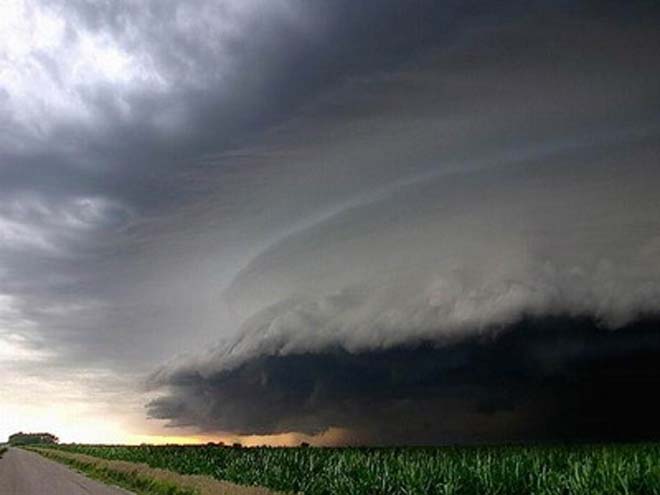Fiji declared a state of emergency for the northern and eastern regions Tuesday as Tropical Cyclone Tomas battered the Pacific island nation, dpa reported.
The military government said troops would be deployed to assist relief efforts, while about 10,000 people were in evacuation centres after rains and winds averaging 175 kilometres an hour strafed the second most-populated island, Vanua Levu.
Reports from the capital Suva said seawater flooded villages and winds toppled trees and brought down power lines, but the true extent of the damage would not be known for days until communications were restored.
Many of the worst-hit areas were under curfew and the Fijilive news website quoted government spokesman Lieutenant-Colonel Neumi Leweni as saying shop owners who had opened were being directed to close their businesses until Wednesday morning.
He said the government was taking stringent measures to ensure that lives were not lost unnecessarily and the police would arrest people found loitering during the curfew period.
A National Disaster Council meeting chaired by military head and Prime Minister Voreqe Bainimarama declared the state of emergency would last for 30 days in the northern and eastern regions.
National Disaster Management operations officer Anthony Blake said reports were still being received but it was obvious that homes, hospitals, health centres, schools and airstrips had been destroyed or damaged.
Meteorology director Rajendra Prasad said the cyclone had doubled its pace Tuesday and was moving on a southerly course at 18-20 kilometres an hour, but would maintain its category-four hurricane status for up to 12 hours before gradually weakening as it leaves Fijian waters early Wednesday.
With winds gusting to 230 kilometres an hour, the cyclone was reported to be the worst to hit Fiji in more than 30 years.
The storm did not pass directly over the main island of Viti Levu, where the capital and the international airport are located, but it still created hurricane force winds and massive seas, and schools and most government offices in Suva were closed.
Emergency declared in cyclone-hit Fiji
Fiji declared a state of emergency for the northern and eastern regions Tuesday as Tropical Cyclone Tomas battered the Pacific island nation






